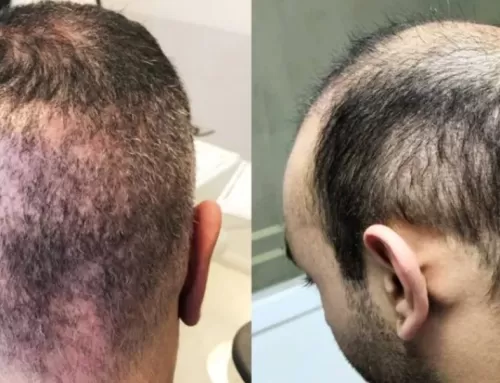Most people lose about 50 to 100 strands of hair every day, and they can lose over twice that while washing their hair. Those lost hairs, however, are generally replaced by new growth. Hair loss is defined as a condition in which the patient loses more hair than is replaced by new growth. Thankfully, you have options when it comes to hair loss treatment.
While hair loss is often genetic, it can be caused by a variety of conditions and medications. Examples include birth control drugs, anti-depressants, and a hormonal imbalance. The first step in treating hair loss is determining the cause. Our team can perform a variety of tests to try to identify said cause.
How is Hair Loss Treated?
In some cases, treating the cause will stop the hair loss. If the patient is still losing their hair, they have many treatment options available, both surgical and non-surgical. The latter typically includes laser hair therapy, platelet-rich plasma, and medications.
Generally speaking, the surgical procedures for hair loss treatment are hair transplants, and the doctor uses one of two procedures: Follicular Extraction and Transplantation or Follicular Unit Transplant. In most cases, the doctor will recommend a non-surgical treatment first. However, it all depends on the unique case.
In laser hair therapy, the energy from the laser will penetrate the scalp and stimulate blood flow to the hair follicles that ultimately causes them to produce more and thicker hair. Laser hair therapy can help both men and women and is particularly helpful at treating androgenic alopecia (male-pattern baldness), the most common cause of hair loss.
Platelet-rich plasma (PRP) hair loss treatment also works by stimulating the hair follicles. We will draw a small amount of the patient’s blood and use a centrifuge to separate the components. We will then inject the platelet-rich plasma into the treatment site. Most patients see some results just weeks later.
In hair transplants, we can harvest follicles from the back of the patient’s head, for that usually has the thickest hair growth. We will then place the follicles in the treatment site. Most of the new hair won’t grow in until months later.
Learn More About Your Options
If you live in the Massachusetts, Rhode Island, or New Hampshire area, you can turn to the team at New England Center For Hair Restoration to learn more about all of your hair loss treatment options. Contact us today to book your appointment in North Attleboro or Westwood.






